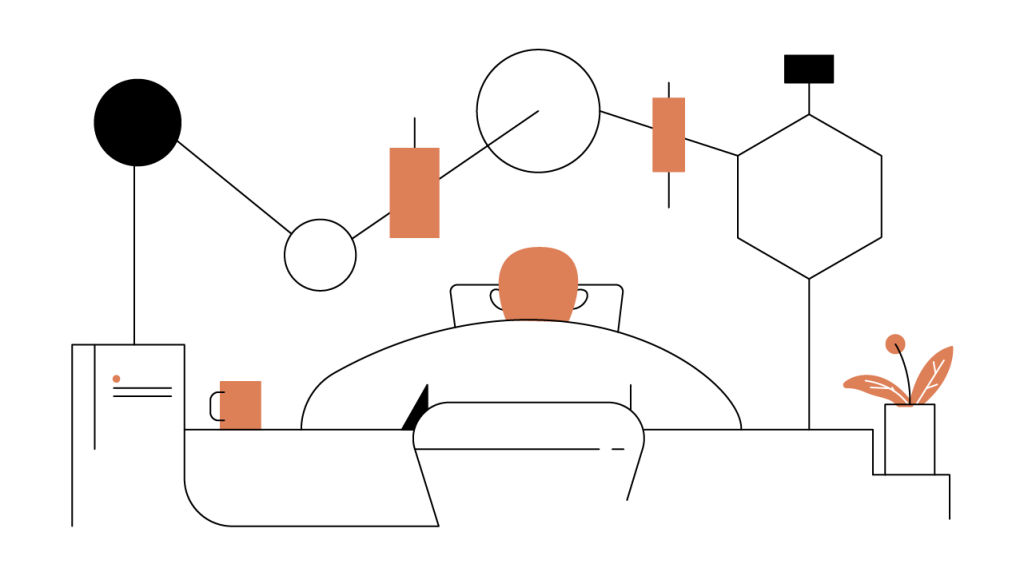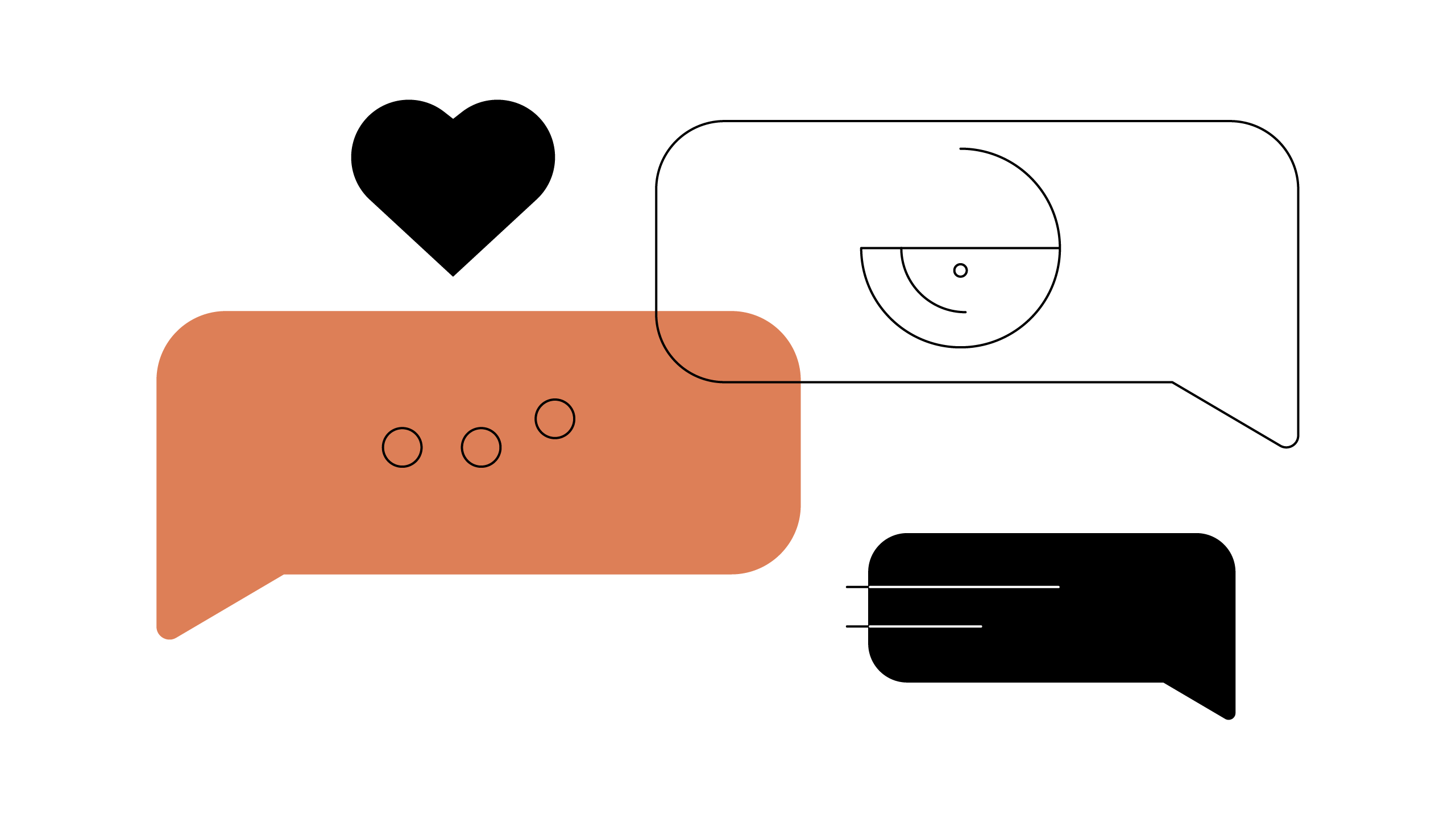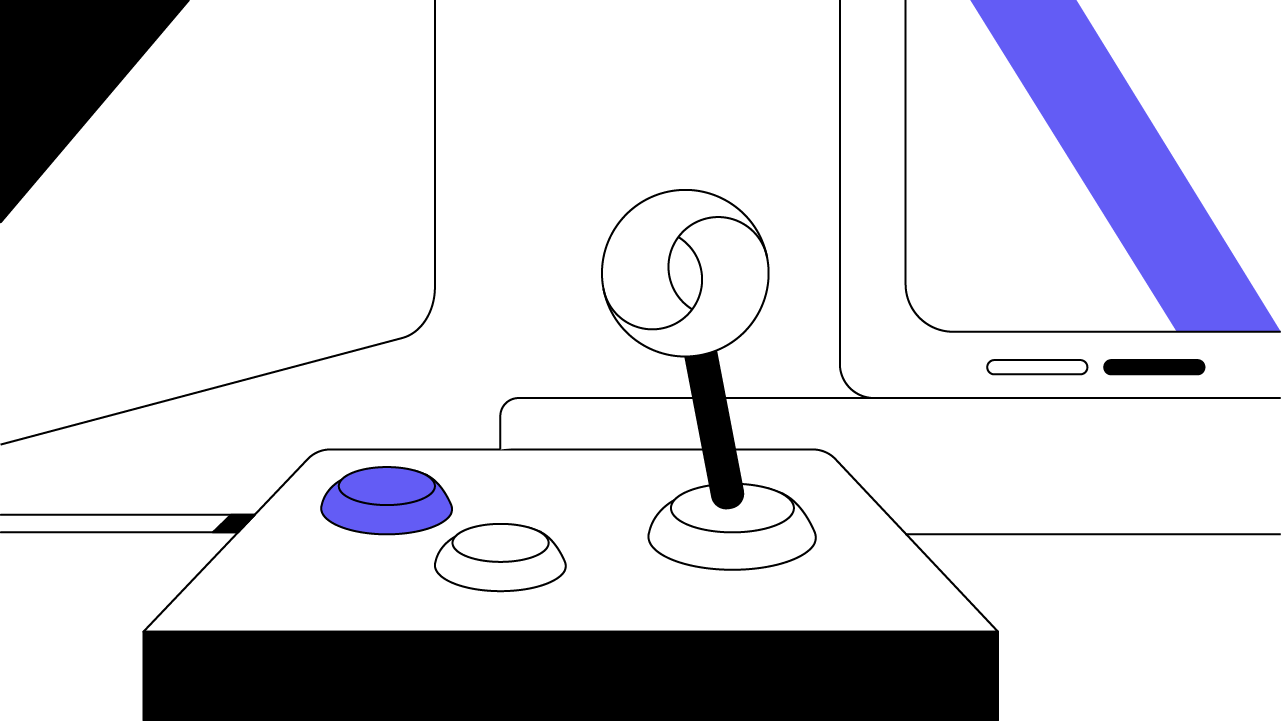Contents
Types of DAOs: Investment, NFTs, Exchanges
DAOs enable novel organizational models for a variety of purposes, including investing, collecting NFTs, and governing exchanges.
Updated June 23, 2022 • 2 min read

Summary
Decentralized autonomous organizations (DAOs) leverage blockchain technology to bring people from all over the world together to collaborate. These horizontal, community-owned structures reject conventional organizational structures, and have been used to create and govern member-owned venture capital funds, community-owned non-fungible token (NFT) art collections, and decentralized exchanges (DEXs) — to name just a few popular use cases. Members typically purchase a DAO’s token to join and vote on proposals. Outcomes are generally executed via code and are transparently recorded on the blockchain.
Unlocking New Forms of Coordination
Though blockchain technology is perhaps best-known for enabling the creation of new types of digital money like cryptocurrency, it can also be used to facilitate powerful new forms of collaboration and coordination. Decentralized autonomous organizations — referred to as DAOs — are one example of how this potential is being put to use.
DAOs are blockchain-native communities that reject the organizational principles of traditional institutions. Unlike conventional organizations, DAOs reject managers, CEOs, and hierarchy. Instead, DAOs are owned by their members, who collectively make decisions and manage their organizations’ funds. DAO participants do so by creating and voting on proposals, which are transparently executed, usually via smart contracts found on blockchain platforms like Ethereum, Cardano, and Solana. Members typically join DAOs by purchasing their tokens on centralized or decentralized exchanges (DEXs).
Investment DAOs
Because DAOs are fundamentally a means of organizing people and coordinating behavior, they can be used for almost anything. However, the first DAO, which was called The DAO, was devoted to investing. Launched in 2016, The DAO aimed to be an investor-directed venture capital (VC) firm and raised USD $150 million worth of ether (ETH), however it was famously hacked before it could begin its mission.
Learning from The DAO’s mistakes, several projects have sought to resurrect the idea of a member-directed DAO investment fund, including: BitDAO, the LAO, Seed Club, DeFi Alliance, and ConstitutionDAO among others. Some projects, like BitDAO and The LAO, aim to pool member capital for the purpose of investing in a variety of crypto projects and share the profits of their investments among all members. Seed Club and DeFi Alliance function more like accelerators — they invest in projects and provide them with guidance. Other Investment DAOs, such as ConstitutionDAO, formed with a single purpose. In ConstitutionDAO’s case, members sought to purchase one of the original copies of the U.S. Constitution. When their bid was unsuccessful, members were offered a refund.
NFT DAOs
The non-fungible token (NFT) community also makes use of DAOs. Groups such as PleasrDAO, FlamingoDAO, and FingerprintsDAO focus on collecting and investing in digital art NFTs and have amassed substantial collections. These NFT DAOs also experiment with community art ownership through fractionalizing NFTs. This means that they divide NFTs into pieces to allow for collective ownership.
Additionally, some NFT projects have formed DAOs to allow their collectors to influence the development of projects and how they make use of their funds. Examples include generative NFT DAO projects like NounsDAO and SquiggleDAO, as well as MeebitsDAO. Instead of purchasing a token to join the DAO, users must hold an NFT from the project’s collection.
Protocol DAOs and Exchange DAOs
As the idea of community-led governance has gained momentum in crypto, DEXs (peer-to-peer (P2P) marketplaces that allow users to buy and sell crypto without an intermediary) have also warmed to DAOs — as have decentralized protocols for related use cases such as crypto lending and decentralized applications (dApps). Protocols such as Uniswap, SushiSwap, and Curve utilize DAO governance to enable their users to influence the development of their projects, define the parameters of features, and tinker with incentive structures. To join these top DAOs, users simply purchase the protocols’ tokens.
The Future of DAOs
While the above DAO use cases are perhaps some of the most widespread, DAOs are increasingly being used for an even broader range of applications, including philanthropy, community-building, decentralized social media, and beyond.
Cryptopedia does not guarantee the reliability of the Site content and shall not be held liable for any errors, omissions, or inaccuracies. The opinions and views expressed in any Cryptopedia article are solely those of the author(s) and do not reflect the opinions of Gemini or its management. The information provided on the Site is for informational purposes only, and it does not constitute an endorsement of any of the products and services discussed or investment, financial, or trading advice. A qualified professional should be consulted prior to making financial decisions. Please visit our Cryptopedia Site Policy to learn more.

Is this article helpful?


